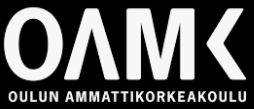Vocational education and training (VET) policy is among top priorities in all European Union (EU) countries as the quality of our life in future to the great extent depends on the skills and competences of the workforce. Changes brought about by technologies and digitalisation demands us to learn new things every day. Situations where the majority of students digitally outperform their teachers is reality in most education systems. To improve digital competences of VET teachers and trainers and make their teaching more attractive by making use of various digital tools the National Centre for Education of the Republic of Latvia with partners from Latvia, Lithuania, Finland, Portugal and the Czech Republic in September 2020 started EU Erasmus+ project “Dig4VET – Digital Tools for Learning and Validation in VET and WBL: Training Program for VET Teachers, Trainers and Mentors”. Project consortium represented VET schools, training centres, public authority and a university of applied sciences. The variety of institutions gave an added value to the project as partners had diverse experience and expertise.
The Dig4VET project was developed in the context of the EU Strategic Framework for European Cooperation in Education and Training (European Union, EU, 2009), mainly Objective 2: Improving the quality and efficiency of education and training, which is about teachers’ continuous professional development (CPD). The focus on digital competences development linked the Dig4VET project with the Objective 4: Enhance creativity and innovation, including entrepreneurship. Because digital tools allow higher levels of inclusion and more flexibility in designing learning pathways and recognizing learning outcomes the project also tackled Objective 3: Promote equity, social cohesion and active citizenship and Objective 1: Make lifelong learning and mobility a reality.
The project idea was also inspired by the Digital Education Action Plan 2018-2020 (European Education Area, 2022), which notes that ”use of technology in education lags behind”. The Plan has defined a priority of “making better use of digital technology for teaching and learning”, stating that “digital technology has huge, largely untapped potential for improving education”.
The two main objectives of the Dig4VET project were to improve skills and competences of VET teachers and trainers to use digital tools in the education process both for classroom and remote learning, and to raise awareness of the variety of digital tools and technologies that can be used in VET school and work-based learning (WBL) settings. When the Dig4VET project was developed none of the project partners could imagine how the Covid-19 virus would change our lives. After all, the project implementation was just in time, as most schools were required to continue learning online or remotely. Project activities and outputs provided support to VET schools, VET teachers and mentors in partner countries. It could be said that the pandemic alongside the negative experiences has also brought about some good things, e.g., teachers have acquired new digital tools, have become more resilient and creative in looking for new solutions and have started thinking outside the box.
The project objectives were focused to raise the project partners awareness of EU self-evaluation tool SELFIE (Selfreflection on Effective Learning by Fostering the use of Innovative Educational technologies) and digital tools for teaching, learning, assessment and validation; and to increase the project participants digital competences level and ability to practically use a variety of digital tools as well as improve their understanding of learning outcomes approach.
To meet these ambitious goals, the project consortium worked on three main project outputs:
- Needs Analysis and Review Report,
- development and piloting of the EU training program for VET teachers, trainers and WBL tutors ”Attractive, Interactive and Inclusive VET: Digital Tools for Teaching, Learning, Assessment and Validation” and
- development of open education resources including video-lessons and examples of using digital tools in teaching/learning contexts.
Oulu University of Applied Sciences (Oamk) was the key partner in the development of the Needs Analysis and Review Report and, introducing the SELFIE tool to all project partners. Oamk also supported the development and piloting of digital validation tools. The partner department was the School of Professional Teacher Education, pioneer in competence-based education with flexible study paths for both practising teachers and teacher candidates who want to gain the official teacher’s qualification diploma to work as a subject teacher at schools, at vocational institutions or at universities of applied sciences. The School of Professional Teacher Education also trains specialists in competence-based qualifications. Additionally, there are many on-going projects that aim to advance competence-based teaching, learning and pedagogical knowledge. The Dig4VET “Self-Assessment of Digital Pedagogical Competence” – digital open badge was one of the advanced applications introduced in terms of competence-based approach during this project (see chapter: Supplementary Qualitative Results). In general, the focus on the development emphasised hands-on experiences and the instructors’ ability to apply newly learned competences; technologies and new pedagogical solutions; in their own work to the full potential.
In the following chapters we communicate a review of teachers’ digital pedagogical competences in Latvia, Lithuania and Portugal based on the results of the SELFIE study and desk research. We also suggest recommendations for future training programs in digital pedagogy for VET teachers, trainers and WBL tutors. The overview of competence-based approaches in continuous professional development (CPD) is specially designed for VET instructors; Teachers, Trainers and Mentors, to enhance the use of digital tools for teaching, learning, assessment and validation. The report will be useful for VET policy and decision makers, VET school management, researchers, and particularly – for VET teacher trainers. It can also be of interest and use for other sectors of education (general education, higher education, adult education).
References
European Union. 2009. Council conclusions of 12 May 2009 on a strategic framework for European cooperation in education and training (ET 2020). 2009/C 119/02. Retrieved April 1, 2022. https://eur-lex.europa.eu/legal-content/EN/ALL/?uri=celex%3A52009XG0528%2801%29
European Education Area. 2022. Digital Education Action Plan 2021–2027. Retrieved April 1, 2022. https://education.ec.europa.eu/focus-topics/digital/education-action-plan

Vastaa
Sinun täytyy kirjautua sisään kommentoidaksesi.